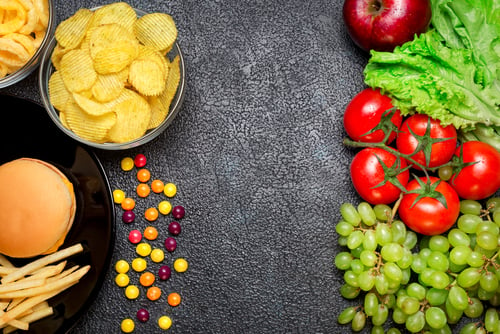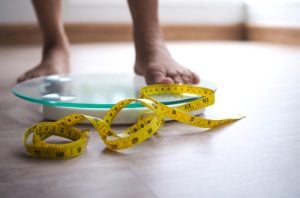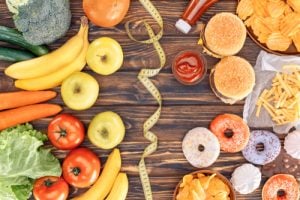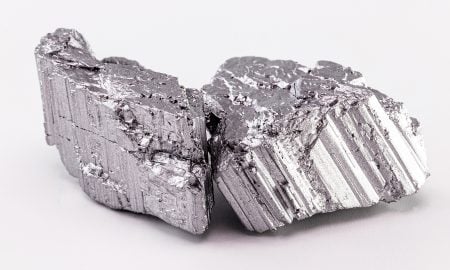
Losing Weight: ‘Cheat Meals’ Can Help You Stay Motivated

Your desire to lose weight may be intense and your commitment to achieve your fitness goals seems to really be strong. However, there would be times during the process that you would be tempted to “cheat” or try to reward taste buds and satisfy your cravings. This is where the struggle becomes more challenging.
“Cheating” is generally the act of deceiving others or being dishonest. The word conjures up images of “negative activities” that eventually lead to bad habits. But does the same negative connotation apply to a cheat day or a meal for someone who’s on a diet? Can “cheating” on one’s diet be beneficial and fun or is it just setting the stage for further dieting disaster? Well, those are the things we’d try to unleash in here.
No doubt, dieting is a fickle beast. Some days, eating just enough chicken, rice, and vegetables to function is fine. Other days, the overwhelming need to eat an entire pizza or a platter of your favorite pasta can be too much to handle. The good thing is that any diet can handle motivation-saving cheat meals. A free meal that allows you to indulge in whatever your heart and taste buds desire may seem too good to be true, but cheat meals are actually essential for a healthy diet.

shisu_ka/Shutterstock
Having said that, there’s a right way to do a cheat meal. Done this way it will aid in weight loss. Then there’s the wrong way that could end up hindering your overall weight loss goal. We understand that for someone who has been cutting and counting calories, you might be wondering what a cheat day is good for especially if it will just ruin your diet in the first place.
Hence, according to research studies, cheating on your diet once a week could actually help you get more motivated and focus on your weight loss goals, eventually helping you you get lean and fit. A study published in the Journal of Consumer Psychology found that cheat days, or “planned hedonic deviations” in science-speak, may actually help motivate you to stick to your diet plan. The research team concluded that having a zero-tolerance approach to “cheat” food wears down motivation.
First thing’s first: it’s a cheat meal, not a cheat day
Cheat meals, or “intermittent striving,” are not only proven to put you in a better mood but can also help you avoid the “failure cascade” or that moment when you pop one cookie and consequently disrupt your entire diet plan by eating the whole box. Thus, eating whatever the heck you want one day of the week instead of sneakily, guiltily taking little bites of dessert every day.
Remember that cheat meals should be a part of your diet, but cheat days will ruin your diet and mess up the entire weight loss program. Most nutrition experts agree that any diet should adhere to the 90/10 rule, meaning 90 percent of the diet should be focused solely on healthy food, while the remaining 10 percent can be devoted to cheat meals – indulging your sweet tooth.

LightField Studios/Shutterstock
“Cheat days serve a couple of purposes. First, it is important to clarify that a cheat day is most successful when a single meal that day is regarded as the cheat,” says Jillian Guinta, professor in the Health and Physical Education Department at Seton Hall University, said in an interview. She continued by saying, “If you allow all of your hard work to unravel for an entire day, you can quickly void the progress you have been making all week, especially if weight loss is a goal.”
“There is a psychological component to the cheat day. Without rewards, it can become mundane to keep a healthy lifestyle day in and day out. Oftentimes, it may take several weeks to see the scale budge, so knowing that a cheat day is coming can help keep up motivation,” Guinta explained.
Science sheds light as to why we need an occasional cheat meal. It all starts with leptin, a protein produced by fat tissue. It helps regulate body weight and fat mass by impacting appetite and the body’s energy balance. A calorie bomb provided by your cheat meal will help the body maintain energy levels needed to continue dieting and exercising. Interesting, right?
Though you really want to “fully satisfy” your junk food desires, cheat meals still require moderation and compromise. Remember, your body still needs the three essential macronutrients: protein, carbohydrates, and fat, for energy and to build muscle. Think of your cheat meal as a time for you to enjoy “bad” protein, carbs, and fat. Likewise, consider saving your cheat meal for post-workout when the body is ready to make use of every macro, “good” or “bad.”
More in Buzz
-
`
Are Rare Earth Elements Really So Rare?
When we hear the term “rare earth elements,” our minds often conjure up images of elusive and scarce materials. After all,...
November 20, 2023 -
`
Exploring America’s Top Tier Hotels
For those who crave the finer things in life, the United States offers a treasure trove of luxurious hotels that elevate...
November 19, 2023 -
`
Where Does Elon Musk Live? Let’s Find Out!
Elon Musk, the billionaire entrepreneur and visionary behind Tesla and SpaceX, is known for pushing the boundaries of technology and innovation....
November 10, 2023 -
`
The Origin of Elon Musk’s Feud With Bill Gates
In the world of tech titans and billionaire visionaries, it’s not uncommon for rivalries and feuds to develop. One of the...
November 1, 2023 -
`
Wall Street Downgrade VS. Upgrade: Which One Is Better for Your Money?
“Bad news sells.” It is an age-old adage we have all heard before. In the world of finance, the principle often...
October 28, 2023 -
`
Guitar Smashed By Nirvana’s Kurt Cobain Sells for Nearly $600k!
In the world of rock ‘n’ roll, legends are born from the music and the artifacts left behind. One such artifact,...
October 21, 2023 -
`
Dwayne “The Rock” Johnson’s Plastic Surgery Journey
Dwayne Johnson, globally celebrated as “The Rock,” is synonymous with wrestling and Hollywood stardom. With a physique chiseled from relentless workouts...
October 10, 2023 -
`
The Most Expensive Things Owned By Brad Pitt
Brad Pitt, one of Hollywood’s most iconic and influential actors, has amassed fame and fortune and an impressive collection of extravagant...
October 3, 2023 -
`
Upgrade Your Man Cave With These Creative & Practical Tips
Your man cave is that sacred space where you can unleash your inner creative beast, indulge in hobbies, or simply kick...
October 1, 2023















You must be logged in to post a comment Login